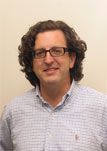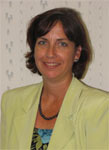https://education.ufl.edu/news/files/2019/07/News-1-300x65.png
0
0
https://education.ufl.edu/news/files/2019/07/News-1-300x65.png
2007-05-07 12:49:222011-10-13 12:26:15See streaming video of May 5 commencement ceremony
https://education.ufl.edu/news/files/2019/07/News-1-300x65.png
0
0
https://education.ufl.edu/news/files/2019/07/News-1-300x65.png
2007-05-04 12:20:142011-10-13 12:26:15Looking beyond the numbers in research
https://education.ufl.edu/news/files/2019/07/News-1-300x65.png
0
0
https://education.ufl.edu/news/files/2019/07/News-1-300x65.png
2007-05-04 12:15:492011-10-13 12:26:15Creating 'magic' for at–risk readers
https://education.ufl.edu/news/files/2019/07/News-1-300x65.png
0
0
https://education.ufl.edu/news/files/2019/07/News-1-300x65.png
2007-05-04 12:11:342011-10-13 12:26:15Keeping the gateway to college open
https://education.ufl.edu/news/files/2019/07/News-1-300x65.png
0
0
https://education.ufl.edu/news/files/2019/07/News-1-300x65.png
2007-05-02 12:52:362011-10-13 12:26:15UF honors local educators, students for 'public scholarship' benefiting schools, community
https://education.ufl.edu/news/files/2019/07/News-1-300x65.png
0
0
https://education.ufl.edu/news/files/2019/07/News-1-300x65.png
2007-04-24 22:24:552011-10-13 12:26:16Wendy Norman on James W. Norman
https://education.ufl.edu/news/files/2019/07/News-1-300x65.png
0
0
https://education.ufl.edu/news/files/2019/07/News-1-300x65.png
2007-04-24 22:24:152011-10-13 12:26:16U.S.-China teaching styles compared
https://education.ufl.edu/news/files/2019/07/News-1-300x65.png
0
0
https://education.ufl.edu/news/files/2019/07/News-1-300x65.png
2007-04-24 22:24:042011-10-13 12:26:16STL professor inspires creation of children's alliance
https://education.ufl.edu/news/files/2019/07/News-1-300x65.png
0
0
https://education.ufl.edu/news/files/2019/07/News-1-300x65.png
2007-04-24 22:23:512011-10-13 12:26:16Bilingual literacy ed specialist doesn't always go by the book
https://education.ufl.edu/news/files/2019/07/News-1-300x65.png
0
0
https://education.ufl.edu/news/files/2019/07/News-1-300x65.png
2007-04-20 10:11:282016-05-03 11:51:34coE-News: April 17, 2006, VOL. 1 ISSUE 8
https://education.ufl.edu/news/files/2019/07/News-1-300x65.png
0
0
https://education.ufl.edu/news/files/2019/07/News-1-300x65.png
2007-04-20 09:41:132016-05-03 14:44:03coE-News: February 15, 2006, VOL. 1 ISSUE 6
https://education.ufl.edu/news/files/2019/07/News-1-300x65.png
0
0
https://education.ufl.edu/news/files/2019/07/News-1-300x65.png
2007-04-18 10:20:512011-10-13 12:26:16UF professor takes common calculator to next level in math class
https://education.ufl.edu/news/files/2019/07/News-1-300x65.png
0
0
https://education.ufl.edu/news/files/2019/07/News-1-300x65.png
2007-04-18 10:09:242011-10-13 12:26:16Honors & Appointments
https://education.ufl.edu/news/files/2019/07/News-1-300x65.png
0
0
https://education.ufl.edu/news/files/2019/07/News-1-300x65.png
2007-04-18 08:02:262011-10-13 12:26:16Former Congressman Bob Barr to address teacher educators at UF
https://education.ufl.edu/news/files/2019/07/News-1-300x65.png
0
0
https://education.ufl.edu/news/files/2019/07/News-1-300x65.png
2007-04-17 14:32:172011-10-13 12:26:16Counselor Education remains No. 2 in US News rankings
https://education.ufl.edu/news/files/2019/07/News-1-300x65.png
0
0
https://education.ufl.edu/news/files/2019/07/News-1-300x65.png
2007-04-17 14:29:152016-05-03 12:45:17coE-News: April 17, 2007 VOL. 2 ISSUE 7
https://education.ufl.edu/news/files/2019/07/News-1-300x65.png
0
0
https://education.ufl.edu/news/files/2019/07/News-1-300x65.png
2007-04-17 14:28:282011-10-13 12:26:16National organization moves HQ to Norman Hall
https://education.ufl.edu/news/files/2019/07/News-1-300x65.png
0
0
https://education.ufl.edu/news/files/2019/07/News-1-300x65.png
2007-04-16 09:00:422011-10-13 12:26:16Elementary Education program ranked 23rd in nation
https://education.ufl.edu/news/files/2019/07/News-1-300x65.png
0
0
https://education.ufl.edu/news/files/2019/07/News-1-300x65.png
2007-04-16 08:57:592011-10-13 12:26:17Special Education jumps to 4th in national rankings
https://education.ufl.edu/news/files/2019/07/News-1-300x65.png
0
0
https://education.ufl.edu/news/files/2019/07/News-1-300x65.png
2007-04-16 08:46:542011-10-13 12:26:17Teacher inquiry showcase offers a view from the front lines of education
https://education.ufl.edu/news/files/2019/07/News-1-300x65.png
0
0
https://education.ufl.edu/news/files/2019/07/News-1-300x65.png
2007-04-16 08:43:122011-10-13 12:26:17Two from EAP honored by community college researchers
https://education.ufl.edu/news/files/2019/07/News-1-300x65.png
0
0
https://education.ufl.edu/news/files/2019/07/News-1-300x65.png
2007-04-16 08:38:472011-10-13 12:26:17Danling Fu named Graduate Teacher of the Year
https://education.ufl.edu/news/files/2019/07/News-1-300x65.png
0
0
https://education.ufl.edu/news/files/2019/07/News-1-300x65.png
2007-04-16 08:37:172011-10-13 12:26:17Special education instructor named UF Research Foundation professor
https://education.ufl.edu/news/files/2019/07/News-1-300x65.png
0
0
https://education.ufl.edu/news/files/2019/07/News-1-300x65.png
2007-04-16 08:36:222011-10-13 12:26:17Tucker, Green named Staff Members of the Year
https://education.ufl.edu/news/files/2019/07/News-1-300x65.png
0
0
https://education.ufl.edu/news/files/2019/07/News-1-300x65.png
2007-04-16 07:56:362011-10-13 12:26:17Research weighs heavily in College rankings, but impact of scholarship is best gauge of success
https://education.ufl.edu/news/files/2019/07/News-1-300x65.png
0
0
https://education.ufl.edu/news/files/2019/07/News-1-300x65.png
2007-04-09 08:06:022011-10-13 12:26:17From classroom to boardroom: COE commencement speaker to stress the power of personal
https://education.ufl.edu/news/files/2019/07/News-1-300x65.png
0
0
https://education.ufl.edu/news/files/2019/07/News-1-300x65.png
2007-03-30 16:11:012011-10-13 12:26:17Palm Pilot Project
https://education.ufl.edu/news/files/2019/07/News-1-300x65.png
0
0
https://education.ufl.edu/news/files/2019/07/News-1-300x65.png
2007-03-30 11:02:282011-10-13 12:26:17Lowery to help state review initial educator programs
https://education.ufl.edu/news/files/2019/07/News-1-300x65.png
0
0
https://education.ufl.edu/news/files/2019/07/News-1-300x65.png
2007-03-30 10:57:462016-05-03 12:40:14coE-News: February 15, 2007 VOL. 2 ISSUE 5
https://education.ufl.edu/news/files/2019/07/News-1-300x65.png
0
0
https://education.ufl.edu/news/files/2019/07/News-1-300x65.png
2007-03-19 11:41:082011-10-13 12:26:17Improving the research culture at COE
https://education.ufl.edu/news/files/2019/07/News-1-300x65.png
0
0
https://education.ufl.edu/news/files/2019/07/News-1-300x65.png
2007-03-19 11:32:432011-10-13 12:26:17Three at COE selected for Faculty Achievement Recognition
https://education.ufl.edu/news/files/2019/07/News-1-300x65.png
0
0
https://education.ufl.edu/news/files/2019/07/News-1-300x65.png
2007-03-19 11:16:452016-05-03 12:37:06coE-News: March 19, 2007 VOL. 2 ISSUE 6
https://education.ufl.edu/news/files/2019/07/News-1-300x65.png
0
0
https://education.ufl.edu/news/files/2019/07/News-1-300x65.png
2007-03-19 10:36:132011-10-13 12:26:18COE Viewbook wins ADDY Award
https://education.ufl.edu/news/files/2019/07/News-1-300x65.png
0
0
https://education.ufl.edu/news/files/2019/07/News-1-300x65.png
2007-03-19 09:15:402011-10-13 12:26:18UF professor takes common calculator to next level in math and science classes
https://education.ufl.edu/news/files/2019/07/News-1-300x65.png
0
0
https://education.ufl.edu/news/files/2019/07/News-1-300x65.png
2007-03-19 09:12:252011-10-13 12:26:18Repetto honored for assisting students with disabilities in transition to adulthood
https://education.ufl.edu/news/files/2019/07/News-1-300x65.png
0
0
https://education.ufl.edu/news/files/2019/07/News-1-300x65.png
2007-03-19 09:10:082011-10-13 12:26:18Building at FAMU named for former COE professor
https://education.ufl.edu/news/files/2019/07/News-1-300x65.png
0
0
https://education.ufl.edu/news/files/2019/07/News-1-300x65.png
2007-03-19 09:06:132011-10-13 12:26:18UF joins effort to revamp Ed. D. degree, seeks faculty input
https://education.ufl.edu/news/files/2019/07/News-1-300x65.png
0
0
https://education.ufl.edu/news/files/2019/07/News-1-300x65.png
2007-03-05 09:04:452011-10-13 12:26:18$10M gift spurs all-out push to help Florida children succeed in school, life
https://education.ufl.edu/news/files/2019/07/News-1-300x65.png
0
0
https://education.ufl.edu/news/files/2019/07/News-1-300x65.png
2007-02-20 14:54:172011-10-13 12:26:18Hispanic students perform better in colleges with larger Hispanic communities
https://education.ufl.edu/news/files/2019/07/News-1-300x65.png
0
0
https://education.ufl.edu/news/files/2019/07/News-1-300x65.png
2007-02-20 14:18:552011-10-13 12:26:18IHE names winners of Bellwether Award
https://education.ufl.edu/news/files/2019/07/News-1-300x65.png
0
0
https://education.ufl.edu/news/files/2019/07/News-1-300x65.png
2007-02-16 11:18:532011-10-13 12:26:18Education Career Night
https://education.ufl.edu/news/files/2019/07/News-1-300x65.png
0
0
https://education.ufl.edu/news/files/2019/07/News-1-300x65.png
2007-02-16 10:13:392011-10-13 12:26:18School psychology program gets nod from APA, NASP
https://education.ufl.edu/news/files/2019/07/News-1-300x65.png
0
0
https://education.ufl.edu/news/files/2019/07/News-1-300x65.png
2007-02-15 11:37:302011-10-13 12:26:18Linda Cronin Jones named Undergraduate Teacher of the Year
https://education.ufl.edu/news/files/2019/07/News-1-300x65.png
0
0
https://education.ufl.edu/news/files/2019/07/News-1-300x65.png
2007-02-15 11:31:212011-10-13 12:26:19Hispanic students perform better in colleges with larger Hispanic communities, UF study finds
https://education.ufl.edu/news/files/2019/07/News-1-300x65.png
0
0
https://education.ufl.edu/news/files/2019/07/News-1-300x65.png
2007-02-15 11:28:332011-10-13 12:26:19New Leaders in Development Reflect CoE's Core Values
https://education.ufl.edu/news/files/2019/07/News-1-300x65.png
0
0
https://education.ufl.edu/news/files/2019/07/News-1-300x65.png
2007-02-15 11:26:442016-05-06 14:06:34Dean's Message: Faculty searches. Strengthening the Ed.D. Big announcement.
https://education.ufl.edu/news/files/2019/07/News-1-300x65.png
0
0
https://education.ufl.edu/news/files/2019/07/News-1-300x65.png
2007-02-15 11:24:332016-05-03 12:32:46Baby Gator Research Report
https://education.ufl.edu/news/files/2019/07/News-1-300x65.png
0
0
https://education.ufl.edu/news/files/2019/07/News-1-300x65.png
2007-01-17 14:44:232011-10-13 12:26:19Dean's Message - Centennial Message to Colleagues of the Future
https://education.ufl.edu/news/files/2019/07/News-1-300x65.png
0
0
https://education.ufl.edu/news/files/2019/07/News-1-300x65.png
2007-01-17 14:01:132011-10-13 12:26:19EduBlog Award for COE distance education expert
https://education.ufl.edu/news/files/2019/07/News-1-300x65.png
0
0
https://education.ufl.edu/news/files/2019/07/News-1-300x65.png
2007-01-17 12:47:422011-10-13 12:26:19UF program prepares career changers to teach in crisis schools
Scroll to top

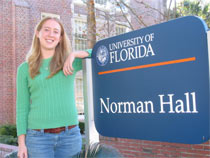 Wendy Norman
Wendy Norman
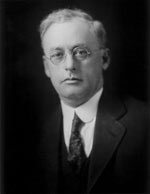 James W. Norman
James W. Norman
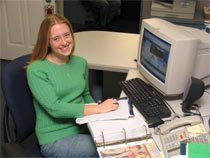 Wendy Norman
Wendy Norman
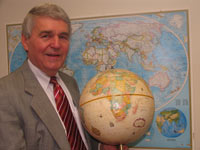 Thomas Oakland
Thomas Oakland
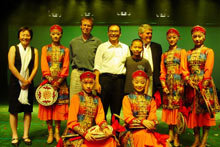 Professor Oakland, third from right on top row, poses with a dance team of Chinese schoolchildren.
Professor Oakland, third from right on top row, poses with a dance team of Chinese schoolchildren.
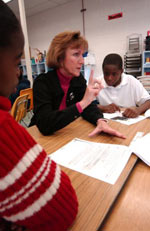
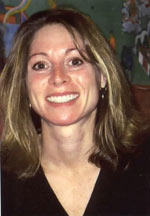
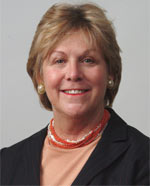
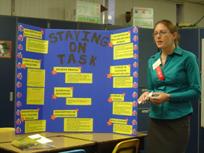


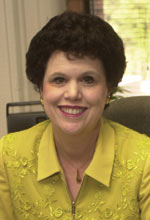
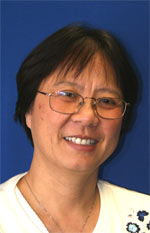



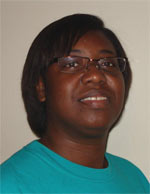
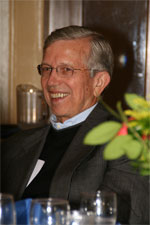
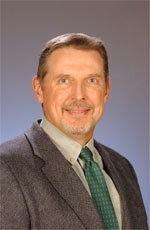
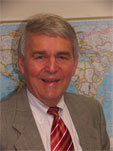
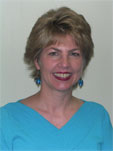

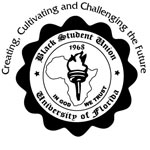
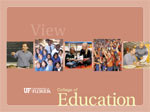
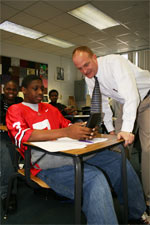
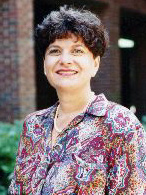
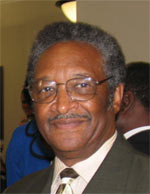
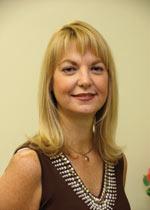
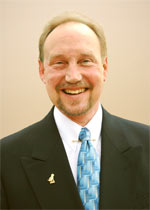
 Pallas
Pallas